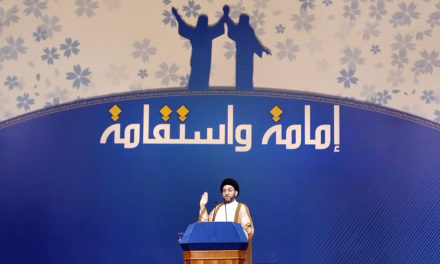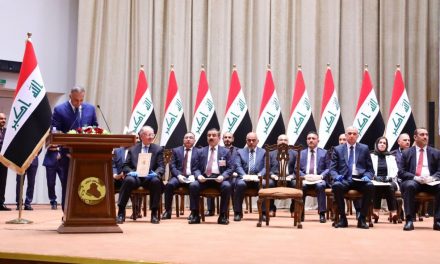One can say with certainty that President Donald Trump’s approach to the region is different from his predecessors. The Iranian nuclear deal was somewhat executed with the side advantage belief that time would lead to a process of normalization and a rapprochement between its signatures even if it took a while. The deal was reached while geopolitical tensions and the Cold War between Iran and its regional and international adversaries are worsening in Yemen, Syria, Bahrain, Lebanon and Iraq. The United States also hoped that by reaching this new deal, Iran would reduce its focus on ballistic missile development and testing programs. However, Trump’s Administration concluded that the deal is not achieving its desired benefits, nor does the U.S. need to comply with it, more so since getting out of the deal was a clear 2016 election campaign promise. Hence a strong approach was undertaken by the new Administration against Iran started with further containment to seek to cripple its economy and signalling to all its readiness to confront Tehran across the Middle East including in Iraq.
Do we in Iraq have to be concerned with this new development? Absolutely. For many reasons, Iraq is a major economic partner of Iran and daily commercial deals are carried out across many sectors and through a large number of border crossings. On the other hand, the United States is the only country with which Iraq signed the Strategic Framework Agreement across many vital sectors, and Iraq will need the support of the U.S. in various fields such as infrastructure projects as well as security and development of its military capabilities, especially since the military presence of Da’ish has diminished but it remains a real threat on ideological and security fronts.
One cannot say with confidence what Iranian reactions to these ferocious U.S. measures will be. Will they submit to the pressure if there is a strong international and regional united front against them? Or will it seek to limit the U.S. presence through third countries such as Iraq? For our part, we do not yet know exactly what the U.S. goal is. Is it regime change in Tehran? Or just containment in terms of Iranian geopolitical interference coupled with its increased arming and threat to Israel? Similarly, what is the likely adverse impact on Iraq’s national security and economic development? Both countries are very important to us, both are partners in addressing the major challenges we face. Without knowing exactly what American objectives are, and its regional policies are not fully communicated and accepted we should not be, nor put ourselves, in a position which will adversely impact us.
Iraq has just concluded new general elections in which new leadership may emerge or the current leadership of Prime Minister Haider Al-Abadi may be renewed. With regard to the type of relationship between Iraq and U.S., over the past few years, American officials and experts have realized they are cautiously optimistic on Iraq. For them there is a conviction that regardless of the personality of the next Iraqi prime minister, he is unlikely to place Iran’s interest above that of Iraq. The United States’ priority in Iraq will continue to be its partnership in the fight against terrorism, but will that exceed the strong focus on containing Iran? Some recent U.S. developments have already tested this new approach.
Iraqis, government and society, need now to see the United States differently. The new reality says that American interests are the only objective for their foreign policy, and that morality, democracy and high American virtues are not the main motivations now. Until the full picture of this new view is fully realized, Iraqis must be cautious in dealing with sensitive regional challenges such as Syria and the nuclear dossier. Our regional policies should not place us in a position to choose between our neighbors or our international partners when they compete elsewhere, since that would backfire and harm our security and development.
As for the U.S. relationship with Iraq, the security and stability of Iraq must be vital to U.S. national and regional security. With regard to Iraq and the region, it is necessary for the U.S. to consider the intended and unintended consequences of its strong and fierce sanctions against Iran. Especially after the recent recovery of Iraq from the occupation of Da’ish to certain parts of the country. Likewise Iran does need to consider the security of Iraq as an integral part of its own security. Here the United States and Iran must be wary of not allowing their enmity to flow into Iraq.
For our part, Iraq needs to undertake a detailed analysis of the objectives and ramifications of U.S. sanctions on Iran and how we should not be within the target area of U.S. blockade. Here, the Government of Iraq must assess the main risks of these sanctions and mitigate their negative impact. Playing in the middle and trying to be a balancing factor will be much harder than before.
Finally, dialogue between the players is the only way to reduce tension, however this may not happen for a while. The U.S. administration will soon, with congressional elections at the end of this year, be at a crossroads, either the scope of its current foreign policy get expanded or restricted with less options, we have to wait and see.

Lukman Faily
Lukman Faily served as Iraqi ambassador to Japan and the United States.










